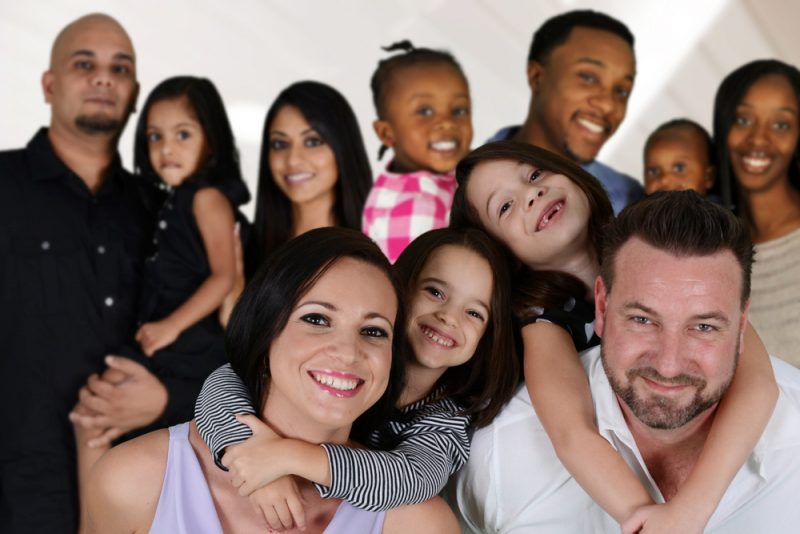Julia: This is Julia with Prison: The Hidden Sentence™. I'm here at the International Prisoners Family Conference with Ron and Cathy Tijerina from the RIDGE Project. Their program is called Tyro and is instrumental family reunification and in reducing recidivism. Thank you so much for joining me here today. This has been such a great conference. It's day three.
You can listen to the interview here:
(Minor edits for readability)
Ron: And to be here in Dallas, Texas is a wonderful, wonderful experience.
Julia: Could you tell me a little bit about the RIDGE Project, and the Tyro Program?
Ron: The RIDGE Project was founded out of our own time of suffering and despair, and being what it was to not really be focused in life. I found myself in prison serving a sentence for a crime I didn't commit of 14 to 25 years, but it was in that experience that we woke up, and we grew up, and the RIDGE Project was birthed out of that experience. We founded our program called Tyro.

Cathy: The Ridge Project, our mission is to create and build a legacy of strong families. We particularly work with, what we would consider, the most vulnerable families having been there, and that is the families infected, or impacted by incarceration. And so, through our own experience we developed a Tyro suite of programs. We have Tyro Dads for incarcerated Dads. Tyro Leadership for really anybody, Tyro Moms and Tyro Rites of Passage for young people.
Cathy: Tyro JET.
Ron: Job Ethic Training. The word Tyro is a Latin word that means apprentice, novice,
someone learning something new, a warrior, and so what we do is we teach and empower families to fight for their legacy.
Cathy: We do Family Days inside institutions where we bring in the kids and the family in, and we have day-long activities. They eat two meals together, breakfast and lunch. We've done things like Zoo Day where zoos have brought animals in, and they've been able to really experience zoo together. We do time with dad, and that could be help with homework, it could be a basketball camp, just ways to build memories and connect. But, we also do couple's communication, and couple's events. We do marriage events and couple events, inside prisons, and outside, so that we can really help strengthen the core of the family in spite of the incarceration. That's why were super excited to hear about you and what
you do with Prison: The Hidden Sentence, and really helping people along that journey. We're just so grateful to have met you, and be here.

Ron: What I really like is about what you're doing on empathy awareness. What does that mean? It's one thing to sympathize with somebody, but it's another thing to walk with them through the process of healing, and finding themselves on the other side of living to tell about their experience.
Cathy: Because when Ron was in prison I didn't want anybody's sympathy. I didn't want to be viewed as pathetic. I wanted people to understand what I was experiencing, and walk through it with me.
Julia: I really appreciate that. I think everything that you're doing, and all your programs would encompass a lot of empathy, too. The programs that you have where are you going to the prisons, and how did you get into the prisons to be able to do that because I think we need to spread that?
Ron: Great question. We're in Ohio. We have a corporate office in a little town called McClure. We have an office also in Wooster, Ohio. We're a statewide organization where we just been knocking on doors and showing the wardens, the
deputy wardens, our special services, and understanding their pain, and understanding what they're looking for, their outcomes, and helping them achieve their goals, and their mandates from the governor on down. I think that's one thing that non-profits when you're doing this type of work, you gotta know what are the outcomes they need to produce?
Cathy: So that you can connect with them and speak their language. And so, in almost every state now family reunification is one of their priorities because it reduces recidivism. So, when you go on your state's website, and you look and
see what their priorities are then you can speak their language, and say, "Listen, we have a family reunification program. We can help you meet your goals and objects." We do it. Most of the sites in Ohio, they don't have to pay for the services because we have grants. We do have a couple of sites that actually do pay. We've expanded our Tyro Program now into 11 different states, and four different countries, and so we do train people to replicate. We have a peer-to-peer model, so even inside the institution we can train inmates.

Ron: And so, the inmates become is peer educators. That's a huge breakthrough for the prisons to offer that to let the inmate really take ownership of what changed them despite being, wearing prison blues, or whatever, now they're peer
educators.
Julia: I think that sounds really wonderful, and you guys have done so much, and helped so many people. I heard your presentation, and it sounds like that thousands of people have been affected, so if I wanted to bring it to my state how would I get information? How would we do that because I would love to see this?
Cathy: That's a great question. If you go to our website Tyro, that's Tyro365.com. It has all of our trainings. If you contact us and say hey, I'm interested in getting this program in my state. Then someone will reach out to you, and we'll step through and find out what model your most interested in. We’ll walk you through the entire process to make sure it gets inside the institutions.
Julia: Any last words that you'd like to say to people about the conference, and things that can help them?
Cathy: This conference has been amazing.
Ron: What's really great is to see people active, and really trying to make a difference in helping families stay connected. It's a tragedy what happens, and people are hurting, but that's not the end of the story. There's redemption, there's
reconciliation, there's the power of forgiveness, the power of understanding, and the power of life that this doesn't have to end. The story as tragic as it begins, it doesn't end with death. It can end with a new life, a new beginning, and that's what we bring. That's what I see here happening at the conference,
hope for everybody involved in this and impacted by incarceration.
Cathy: That's right. Just hang onto hope, and know that this is not the end, but you have the opportunity to turn this around, and make this into something really great for yourself, and your family in spite of the pain. Never give up. Never give up. Never give up. You are not alone.
Ron: And push, push, push. We encourage you, listen, push through whatever barriers you're facing, push through. If you're trying to get a GED push through, go get it. If you're trying to get a job, go get it. Look, everybody has a story to
tell. It's how you want it to be told, but you have to write it. Don't let somebody else write your story. You have to write your story, and you can make it because if we can do it, so can you.
Julia: Great, great, words. Awesome. Thank you guys so much, and go enjoy the rest of the conference.
Cathy: That was our pleasure.
Ron: Thank you so much, Julia.

Leave a Reply